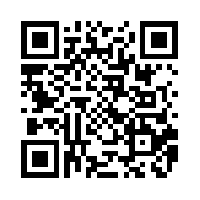Abstract
It is only in the past decade that religion has been recognised as critical to ensuring sustainable international development efforts. This is due in large part to the failure of the dominant development paradigm of Western secularism in the global South. This article focuses on the significant historical contribution of evangelical Christianity in international development and explores some of the ideological tensions that challenge partnership with secular organisations. The resulting separate and parallel efforts of evangelical Christianity and the international non-governmental organisations (INGO) sector are costly and counter-productive in serving the poor. Recently, many INGOs have adopted the human rights-based approach underpinned by its commitment to social justice and solidarity with the poor – values also central to the Bible. It will be argued that this shared approach could provide the necessary bridge to facilitate deeper engagement in the form of social action between secular development actors and evangelicals. The critical role of evangelical Christianity in addressing poverty as a human rights issue in South Africa is also dealt with briefly.Copyright information
- Ownership of copyright in terms of the Work remains with the authors.
- The authors retain the non-exclusive right to do anything they wish with the Work, provided attribution is given to the place and detail of original publication, as set out in the official citation of the Work published in the journal. The retained right specifically includes the right to post the Work on the authors’ or their institutions’ websites or institutional repositories.
Publication and user license
- The authors grant the title owner and the publisher an irrevocable license and first right and perpetual subsequent right to (a) publish, reproduce, distribute, display and store the Work in any form/medium, (b) to translate the Work into other languages, create adaptations, summaries or extracts of the Work or other derivative works based on the Work and exercise all of the rights set forth in (a) above in such translations, adaptations, summaries, extracts and derivative works, (c) to license others to do any or all of the above, and (d) to register the Digital Object Identifier (DOI) for the Definitive Work.
- The authors acknowledge and accept the user licence under which the Work will be published as set out in https://creativecommons.org/licenses/by/4.0/ (Creative Commons Attribution License South Africa)
- The undersigned warrant that they have the authority to license these publication rights and that no portion of the copyright to the Work has been assigned or licensed previously to any other party.
Disclaimer: The publisher, editors and title owner accept no responsibility for any statement made or opinion expressed by any other person in this Work. Consequently, they will not be liable for any loss or damage sustained by any reader as a result of his or her action upon any statement or opinion in this Work.
In cases where a manuscript is NOT accepted for publication by the editorial board, the portions of this agreement regarding the publishing licensing shall be null and void and the authors will be free to submit this manuscript to any other publication for first publication.
Our copyright policies are author-friendly and protect the rights of our authors and publishing partners.

